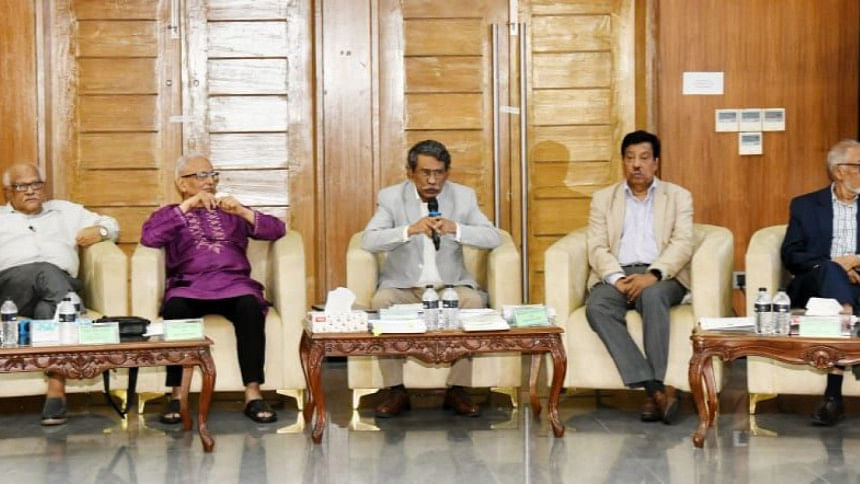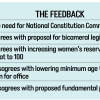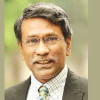If consensus commission fails, it will be a collective failure: Ali Riaz

Prof Ali Riaz, vice-president of the National Consensus Commission, today said the commission is working as a partner in the efforts of political parties.
"If we fail at any point, it will be a failure shared by all. If the commission fails, it will be a collective failure. We must look at it from that perspective," he said.
"There is no room for failure. The responsibility entrusted to us is a shared one — with you, the political parties. The commission is simply a partner in your efforts, not an independent entity," Ali Riaz said.
He made the remarks in his opening statement today, during the 14th day of the second phase of dialogues with political parties held at the Foreign Service Academy in the capital.
Today's agenda includes discussions on a bicameral parliament, constitutional reforms, and reserved seats for women in parliament.
Urging political parties to reflect on the situation a year ago, Ali Riaz said, "We are able to gather here today because the people of Bangladesh — all of you and your activists — risked their lives in that struggle. If we recall that time, those memories, and the circumstances, then there should be no lack of effort in fulfilling our responsibilities. And you have been making that effort. Together, we are all working toward the same goal."
He noted that due to time constraints, the desired progress in the dialogue has not yet been achieved.
"However, after this week, the time pressure will increase significantly, and we will need to make some decisions swiftly. I hope you will keep this in mind. You are already aware of the issues that remain unresolved."
Calling the political parties to work together, the vice-president of the commission said, "We must work together to formulate a national charter through collective consensus, as far as possible. To achieve this, we may all need to continue adjusting our positions. But I urge you to consider the urgency of time, so that we can finalise the charter by the end of July. The core issues should be agreed upon by all — or at least by the majority — to reach common ground."
Ali Riaz said that since assuming responsibility, the commission has served as a collaborator with the political parties.
"We must succeed together, and the true measure of that success lies in our ability to reach consensus on structural reforms. Some areas have already seen agreement, while others have been addressed in preliminary discussions. There are still unresolved issues, which we will address in the upcoming sessions."
He stressed that in the remaining days of dialogue, decisions must be made on all key issues. "In making these decisions, each of us must fully feel the weight of our responsibilities. We must remember how we reached this point, what the public expects from this process, and how each of us is contributing to fulfilling those expectations."
The session was moderated by Monir Hayder, special assistant to the chief adviser. Other attendees included commission members Safar Raj Hossain, Justice Emdadul Haque, Badiul Alam Majumdar, Iftekharuzzaman, and Ayub Mia.

 For all latest news, follow The Daily Star's Google News channel.
For all latest news, follow The Daily Star's Google News channel. 








Comments